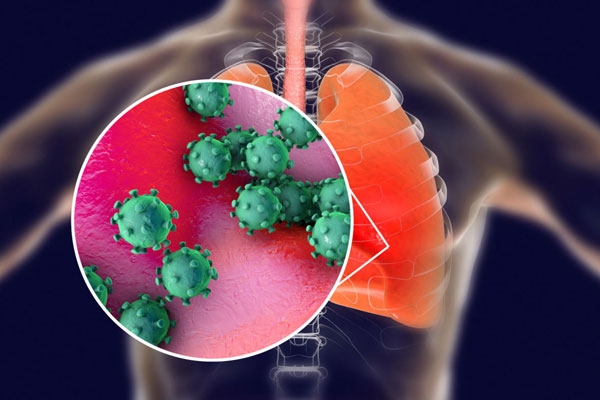
(Image source from: the-scientist.com)
With the impending spread of the novel coronavirus, researchers and scientists are continually working to find ways in which the novel coronavirus is entering our body. They are trying to find those gates that act as an entry point for the transmission of the virus.
While majority of the factors about the novel coronavirus is still a big question at this point, the one thing that the researchers have found is that the virus can’t simple penetrate through the skin. It is transmitted inside our bodies through the mucous membranes.
It is still not a 100% clear as to how the virus enters into our body. The latest point of debate at this point that the researchers are finding answers for is whether or not the virus is spread or transmitted sexually much like Ebola and Zika virus.
Prior researchers have also found that the ebola and zika virus have the capability to survive in the semen of an individual for months after the person has been cured of the disease.
A study conducted by the researchers in Wuhan on the recovered patients has found no possible traces of the virus in the sperm of the patients. The sample size of the study was rather small, consisting of just 34 patients, but it is at least something to go by, especially during this time of crisis.
The research looked through 34 patients in the age between 31-49 and found no possible traces of the novel coronavirus even after a month of recovery.
Apart from the small size of the number of participants in the study, another limitation that was brought to the foreground was the fact that the researchers only analysed the semen sample and not the prospects of transmission through saliva or sweat of the partner.
"Unfortunately, we cannot definitively rule out the presence of Sars-CoV-2 in the seminal fluid during an acute infection with severe Covid-19 symptoms," the researchers concluded saying.
According to this, there are chances that the patients who have experienced a heavy load of the virus in their body could likely show possible signs of the presence of the coronavirus in men too.
"ACE2-mediated viral entry of SARS-CoV-2 into target host cells is unlikely to occur within the human testicle based on ACE2 and TMPRSS2 expression. The long-term effects of SARS-CoV-2 on male reproductive function remain unknown,” the researchers reported.
Six patients among them have reported to experience scrotal discomfort along with inflammation in testicles when they were admitted in the hospital for the virus.
According to the research, ACE2 and TNPRSS2 are the two proteins that facilitate the transmission of the novel coronavirus inside a person’s body. The external body organs with a high density of these two proteins are more vulnerable to this virus in comparison to the others.
Even a collaborative study conducted by researchers from highly reputed colleges like Imperial College London and the University Medical Centre Groningen found that the primary level entry points for the virus is through hands and mouth.
But, the researchers have clarified that the body needs the presence of both ACE2 and TNPRSS2 for successful transmission and manifestation of the virus inside the body. ACE2 and TMPRSS2 are predominantly found in the corneal cells of the eyes which is one of the main reasons why doctors and experts have time and time suggested to avoid rubbing your face with your hands.
The mouth is also directly associated with the nose and lungs, making it a gateway for the virus to enter the body and infest.
An earlier study had found that the novel coronavirus can stay active in the fecal matter of an individual for 11 days. Since these enabling proteins are found in abundance inside the heart, it is one of the reasons why the disease is proving more fatal for the individuals who already struggle with cardiac issues.
By Somapika Dutta






















